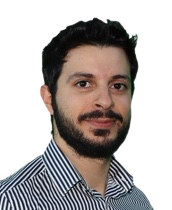
The meeting features four invited speakers, short graduate student ten-minute talks, and the business meeting of the UKIE section.
Register to participate now. Deadline for registration for in-person attendance is 31st of March and for online attendance is 16th of April. Note that there is no registration fee. The deadline for registration to apply to present a ten-minute talk is the same as the general in-person registration deadline.
PhD students who are applying to give a talk may also apply for some Travel Support. Students applying for Travel Support should submit their CVs by email with the subject line "SIAM UKIE Student Travel Support Application". Students based in the UK should send their applications to Hussam Al Daas. Students based in the Republic of Ireland should send their applications to Kirk M. Soodhalter.

There is an opportunity for students/early career researchers to give a short ten-minute research talk. Talks should consist of no more than six slides. Although there will be the opportunity to attend the meeting remotely, the intention is that, unless there are exceptional circumstances, speakers should attend the meeting in person.

The statutory business meeting is also conducted during the annual meeting, wherein the finances and activities of the UKIE section from the previous year are discussed by the treasurer.
The UKIE Annual Meeting will take place on 21st April 2023 in person but with the talks being simultaneously broadcast on Zoom. Registered virtual participants will be sent a Zoom link on the evening of the 20th of April 2023.
Organised by the UKIE Officers

President

Vice-President

Secretary/Treasurer
Prof. Sinéad Ryan
Mirela Dardac
Emma Clancy
Karen O'Doherty
Ciara Scanlon
Liam Burke
Dylan Kierans
We look forward to hearing from you!
Dublin, Ireland
ksoodha@maths.tcd.ie
